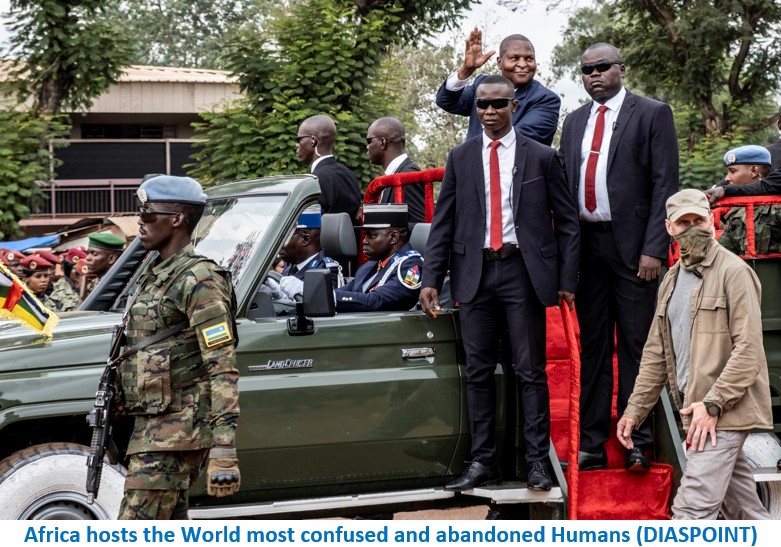Russian mercenaries exploit a war-torn African nation as they lead Putin’s fight in Ukraine
Post By Diaspoint | June 12, 2023

“I asked everyone for help. … Was I supposed to refuse the help from those who wanted to help us?” Central African Republic President Faustin-Archange Touadéra tells NBC News
President Faustin-Archange Touadéra says he called in the Russians because he was stuck.
It was 2016, soon after his election, and rebels had overrun swaths of the resource-rich country, which is among the world’s poorest nations. Former colonial power France announced it would withdraw its soldiers, the backbone of a United Nations force aimed at quelling the country’s civil war.
And Touadéra’s army and militia didn’t have enough weapons to defeat fighters threatening the capital, Bangui, because the Central African Republic was under a U.N. arms embargo put in place after a previous rebel takeover.
So the former mathematics professor turned to Moscow.
While Russia received approval from the U.N. Security Council to deploy military trainers to assist the central African country’s government, Moscow sent in the infamous Wagner Group.
“I couldn’t sit idly by. I asked all my friends, including in the United States, including France,” Touadéra, 66, said during an exclusive interview with NBC News last week.
“I need to protect the population. I need to protect the institutions of the republic. I asked everyone for help, and was I supposed to refuse the help from those who wanted to help us?” he added.
But Wagner’s help isn’t free.
In exchange for its work, the group has gained direct access to the Central African Republic’s natural resources, according to Sorcha MacLeod, a member of the U.N. working group on the use of mercenaries.
“We received information in Central African Republic that the Wagner group was being paid in mining concessions,” she said.
Trading in natural resources gives Wagner, and Russia, a way to evade sanctions put in place since the start of the war in Ukraine last February.
And now, despite Wagner sending tens of thousands of fighters to the war in Ukraine, many of them former prisoners, there’s been no exodus of the group from Africa. Instead there’s been a “doubling-down of Wagner’s presence” and an expansion into other countries, MacLeod said.
Read More from original source
